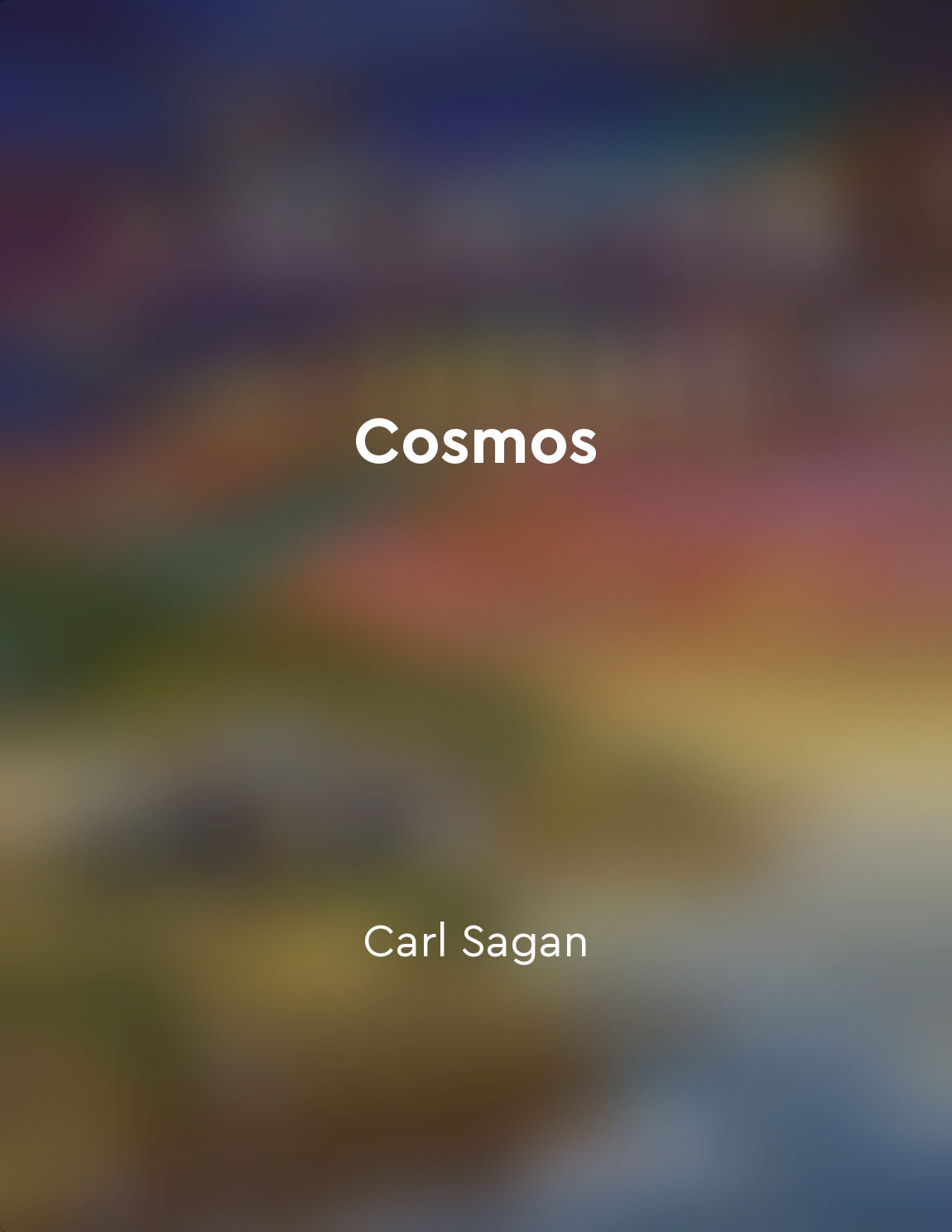Multiverse theory suggests multiple universes from "summary" of A Brief History of Time by Stephen W. Hawking
The idea of multiple universes, or a multiverse, is a concept that has gained popularity in recent years among physicists and cosmologists. This theory suggests that our universe is just one of many that exist simultaneously. The multiverse theory proposes that there are potentially infinite universes, each with its own set of physical laws and properties. According to this theory, these universes might exist alongside our own, occupying the same space but in different dimensions. Each universe could have its own unique history, with different events unfolding and leading to distinct outcomes. These universes could be completely separate from each other, with no interaction or communication between them. One version of the multiverse theory is the idea of a "bubble" multiverse, where different universes bubble up and expand from each other. In this model, each bubble universe is like a separate entity, with its own laws of physics and conditions. These bubble universes could be constantly forming and popping into existence, creating a vast and complex multiverse. Another version of the multiverse theory is the concept of a "parallel" multiverse, where universes exist side by side in different dimensions. In this model, each universe is parallel to the others, existing in the same space but with no interaction between them. This idea suggests that there could be an infinite number of universes, each with its own unique characteristics. While the multiverse theory is still a speculative idea, it has captured the imagination of many scientists and thinkers. The concept of multiple universes challenges our traditional views of the cosmos and opens up new possibilities for understanding the nature of reality. Whether or not the multiverse theory is proven true, it remains a fascinating and thought-provoking concept in the field of cosmology.Similar Posts
Tidal forces near black holes can tear objects apart
When an object gets close to a black hole, tidal forces - the gravitational forces that stretch and squeeze the object - become...
Ignorance breeds fear and prejudice
The evil of prejudice is nurtured by the scourge of ignorance. When we lack knowledge and understanding of others, we allow fea...

Superconducting circuits and trapped ions are two leading approaches in quantum computing
Superconducting circuits and trapped ions are two leading approaches in quantum computing. Superconducting circuits involve tin...
Information transforms
Information can change everything. It is a force that can alter the fabric of reality, molding the universe in its own image. J...
Wormholes could serve as cosmic shortcuts
In the vast expanse of the cosmos, where distances are measured in the trillions of miles, the idea of traveling from one end o...
The existence of parallel universes challenges our understanding of the true nature of reality
The idea of parallel universes poses a profound challenge to our conventional notions of reality. These alternate realities, if...
Mercury is the closest planet to the sun
In our solar system, there is a small planet that orbits closest to the sun - Mercury. This tiny planet is just a fraction of t...
Our place in the cosmos is shaped by the forces of nature, from gravity to electromagnetism
The forces of nature play a significant role in determining our position in the vastness of the cosmos. Gravity, the most famil...

Humans have long been fascinated by the heavens
For as long as there have been humans, we have gazed up at the vast expanse of the night sky with wonder and awe. The stars, pl...
Singularities exist in Black Holes
When a massive star runs out of fuel, it can no longer support itself against its own gravitational pull. The star collapses un...
